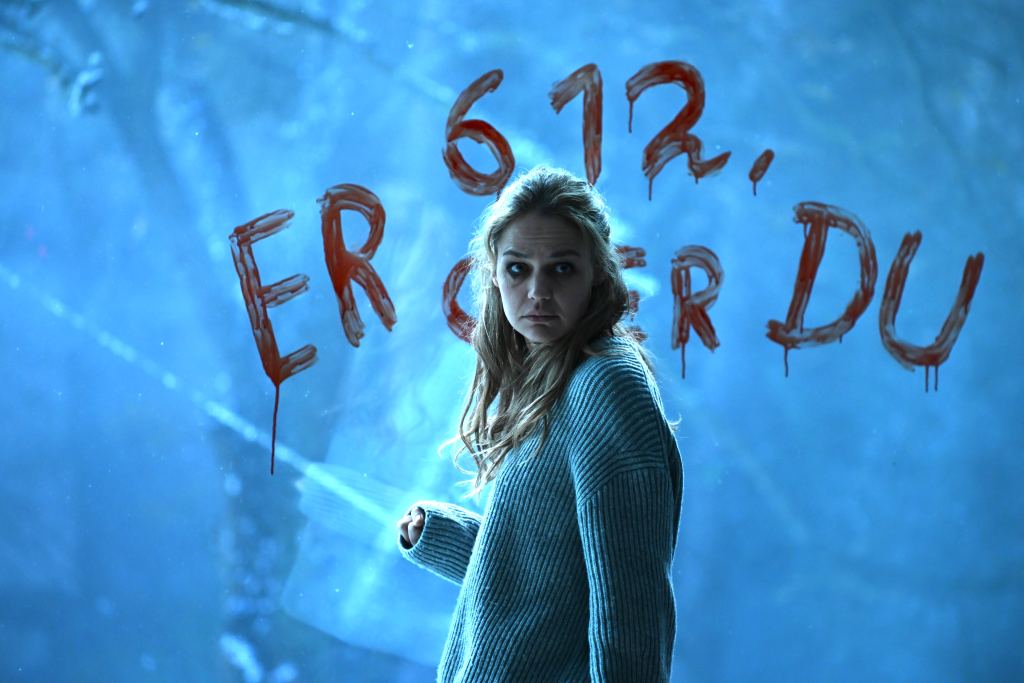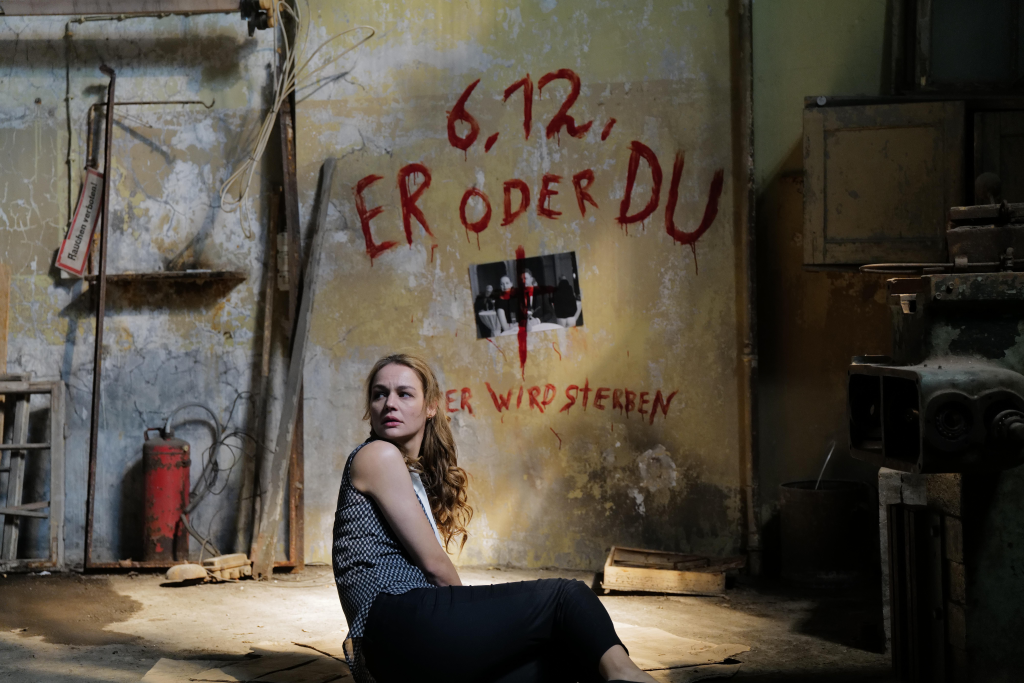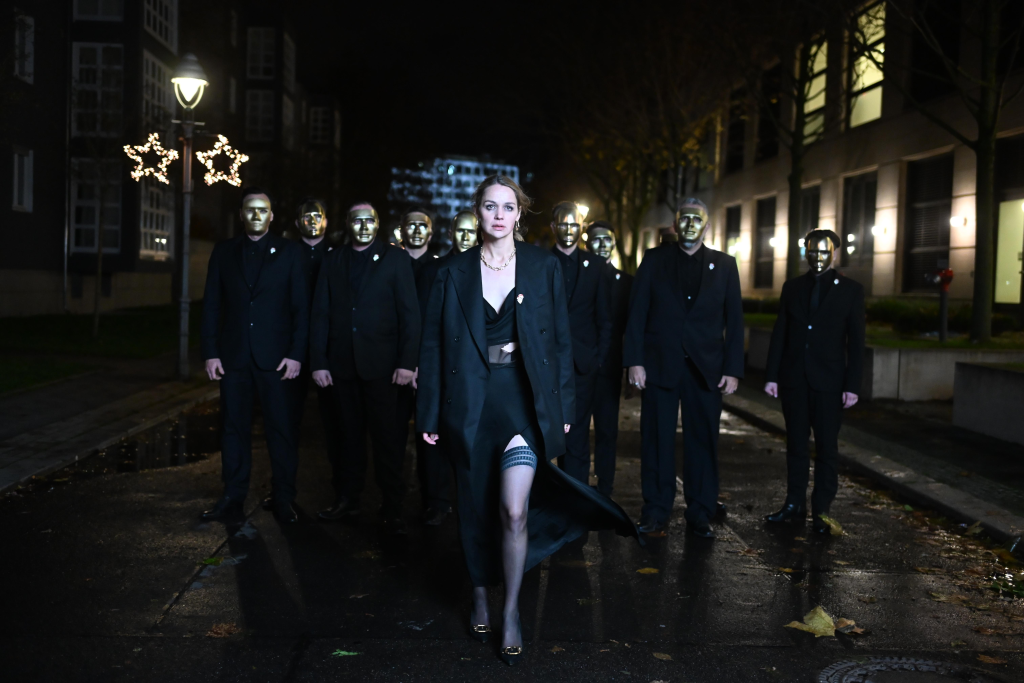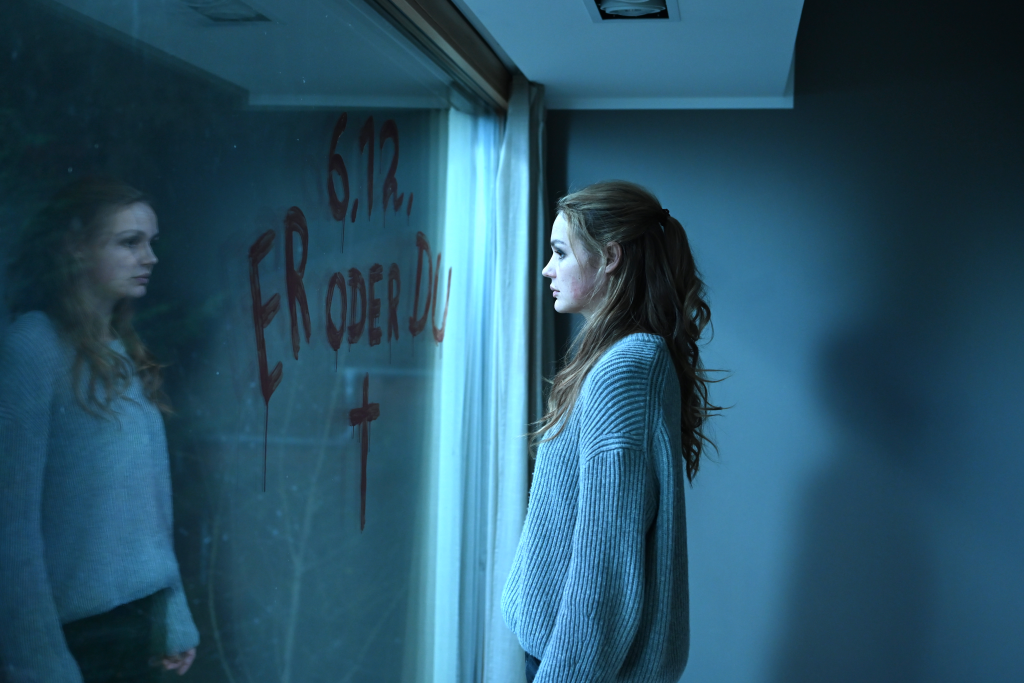The Calendar Killer

Introducing the Movie The Calendar Killer (2025): A Tense German Thriller
The Calendar Killer (2025) is a gripping German crime thriller that delves into the harrowing interplay of domestic abuse, psychological suspense, and moral dilemmas. Directed by Adolfo J. Kolmerer and adapted from Sebastian Fitzek’s bestselling novel Der Heimweg (Walk Me Home), the film premiered on Amazon Prime Video on January 16, 2025. Starring Luise Heyer, Sabin Tambrea, and Friedrich Mücke, it follows a young mother facing an impossible ultimatum from a mysterious serial killer: kill her abusive husband or die herself. With its intense narrative, strong performances, and unflinching exploration of domestic violence, The Calendar Killer offers a compelling, if flawed, addition to the psychological thriller genre. This article provides a comprehensive introduction to the film, covering its plot, production, themes, critical reception, and cultural significance.

Plot Summary
The Calendar Killer centers on Klara (Luise Heyer), a young mother trapped in a toxic marriage with her abusive husband, Martin (Friedrich Mücke), a powerful Secretary of State who projects a polished public image. The story unfolds over a single, tension-filled night in Berlin, where Klara awakens in a grimy basement to find the date “December 6” written in blood on the wall, accompanied by the words “Him or You.” This chilling message comes from the titular Calendar Killer, a serial killer who targets women, giving them an ultimatum: kill their husband by midnight or be killed themselves.
Desperate and terrified, Klara contacts Jules (Sabin Tambrea), a night-shift operator at “Walk Me Home,” a telephone safety helpline for women traveling alone. Initially, Jules assumes Klara’s call is a routine request for reassurance, but her frantic claims of being the Killer’s next victim pull him into a race against time. As Klara navigates a city fraught with danger—evading Martin’s controlling grip and grappling with visions of insects and eerie hallucinations—Jules becomes her lifeline, piecing together clues from his remote station.
The narrative weaves a series of twists, revealing the depth of Martin’s abuse and Klara’s struggle to escape it. Flashbacks depict her despair, including a suicide attempt at her lake house, and her growing resolve to protect herself and her child. Jules, meanwhile, harbors his own tragic past, tied to the loss of his wife, Diana, and their children in a fire, which shapes his motivations in ways that complicate his role as Klara’s savior. The film builds to a climactic confrontation where Klara’s ingenuity, Jules’ intentions, and Martin’s true nature collide, exposing the Calendar Killer’s identity and delivering a bittersweet resolution that underscores the pervasive impact of abuse.

Production and Development
The Calendar Killer was produced by Ziegler Film in collaboration with Amazon MGM Studios and Prime Video, marking their second adaptation of a Sebastian Fitzek novel after the series The Therapy. Directed by Adolfo J. Kolmerer, known for Oderbruch, the film was scripted by Susanne Schneider, with Fitzek contributing to the story. Filming took place in Berlin, leveraging the city’s urban and industrial landscapes to create a claustrophobic, moody atmosphere. Cinematographer Christian Huck employed stark lighting and tight framing to heighten the sense of entrapment, particularly in scenes depicting Klara’s perilous journey.
The production, with a modest budget typical of Prime Video’s international originals, prioritized practical locations and minimal visual effects to ground the story in realism. Key set pieces, such as the basement where Klara receives the Killer’s ultimatum and the eerie lake house, were designed by Thomas Freudenthal to evoke decay and isolation. The score, composed by Román Fleischer and Tim Schwerdter, features pulsating, dissonant tones that amplify the film’s suspense, though it lacks a memorable central theme.
Casting leaned on German talent, with Luise Heyer (Dark) delivering a raw, emotional performance as Klara, and Sabin Tambrea (Babylon Berlin) bringing intensity to Jules. Friedrich Mücke’s portrayal of Martin balances charm and menace, while supporting actors like Rainer Bock as a mysterious figure, HC, and Andreas Döhler add depth to the ensemble. The production faced challenges in adapting Fitzek’s complex novel, which spans multiple perspectives, into a 97-minute film, leading to some criticism of rushed pacing and underdeveloped subplots.

Themes and Symbolism
The Calendar Killer stands out for its unflinching exploration of domestic violence, framing it as both a personal and societal horror. Klara’s plight reflects the real-world struggles of women trapped in abusive relationships, with Martin’s public persona as a “family man” highlighting the duplicity of abusers who evade accountability. The Calendar Killer’s ultimatum—kill or be killed—serves as a twisted metaphor for the impossible choices victims face, where escape often feels as deadly as staying.
The film also delves into themes of justice and vigilantism. The Killer’s method, forcing women to confront their abusers, positions them as a perverse avenger, akin to Jigsaw from the Saw franchise, though their motives are rooted in personal trauma rather than moral philosophy. This raises questions about whether justice can ever be served through violence, particularly when systemic failures, like Martin’s untouchable status, leave victims with no recourse.
Berlin’s urban setting symbolizes a labyrinth of danger and anonymity, mirroring Klara’s psychological entrapment. The Calendar Killer’s signature—dates written in blood—evokes a sense of inevitability, tying the film to themes of fate and mortality. Jules’ backstory, involving the loss of his family, introduces grief as a driving force, though its integration into the main plot feels forced at times. The film’s depiction of insects and hallucinations adds a psychological horror layer, reflecting Klara’s fractured mental state under the weight of abuse and fear.

Cast and Characters
The ensemble cast delivers strong performances, anchoring the film’s emotional stakes:
- Luise Heyer as Klara: A mother and survivor, Klara’s journey from despair to defiance is the heart of the film. Heyer’s nuanced performance captures her fear, resilience, and cunning.
- Sabin Tambrea as Jules: The helpline operator with a tragic past, Jules is both empathetic and enigmatic. Tambrea’s intensity elevates the role, though his arc is less developed.
- Friedrich Mücke as Martin: Klara’s abusive husband, Martin is chillingly charismatic, masking his cruelty with a politician’s charm. Mücke’s performance is a standout.
- Rainer Bock as HC: A cryptic figure tied to the Killer’s schemes, Bock adds gravitas to a limited but pivotal role.
- Supporting Cast: Actors like Andreas Döhler, Dennenesch Zoudé, and Kristin Suckow flesh out the world of Berlin, though their characters are often underdeveloped.
The chemistry between Heyer and Mücke effectively conveys the toxic dynamic of Klara and Martin’s marriage, while Tambrea’s isolated performance mirrors Jules’ detachment, though his connection with Klara feels more functional than emotional.

Cultural Impact and Critical Reception
The Calendar Killer premiered on Amazon Prime Video in 240 territories, capitalizing on Fitzek’s popularity, as Der Heimweg topped German book charts for 11 weeks. The film’s release was accompanied by a trailer that generated buzz for its dark tone and suspenseful premise, though its January launch, post-holiday season, was noted as poorly timed for a thriller with Christmas undertones.
Critical reception was mixed, with praise for its social commentary and performances tempered by critiques of its predictable tropes and uneven pacing. Ready Steady Cut lauded its “haunting exploration of personal torment and domestic abuse,” rating it 3.5/5, while Digital Mafia Talkies called its vigilante depiction “odd yet realistic,” giving it 2/5. Decider’s John Serba suggested trimming expository flashbacks for a tighter thriller, while Heaven of Horror drew comparisons to The Guilty for its phone-based suspense but noted a rushed ending. Surgeons of Horror praised Heyer’s “harrowing” performance and the film’s moody atmosphere but faulted its reliance on clichés.
Audience reactions, as seen on platforms like Letterboxd and IMDb (5.4/10), were polarized. Some appreciated the “unexpected plot twist” and its handling of domestic violence, while others found it “superficial” and “forgettable,” citing forced acting and a lackluster third act. Posts on X highlighted the film’s suspenseful concept and Fitzek’s source material, reflecting excitement among thriller fans. The film’s focus on domestic abuse resonated with viewers, though its triggering content was flagged as a potential barrier.

Critical Analysis
The Calendar Killer excels in its early tension, particularly in scenes where Klara’s fear and Jules’ urgency collide over the phone, evoking the claustrophobic suspense of The Guilty. Kolmerer’s direction and Huck’s cinematography create a gritty, immersive Berlin, with standout moments like Klara’s escape through a shadowy elevator or the eerie basement ultimatum. Heyer’s performance is the film’s backbone, grounding its sensational premise in raw emotion.
However, the film struggles with pacing and narrative coherence. The second act sags under repetitive confrontations, and the reliance on flashbacks to explain Jules’ motives feels heavy-handed, disrupting the suspense. The twist, while surprising to some, is telegraphed for attentive viewers, and the rushed climax undercuts the emotional weight of Klara’s victory. The Calendar Killer’s unique method—offering victims a “choice”—is intriguing but underexplored, with the film leaning too heavily on familiar serial killer tropes.

The exploration of domestic violence is both a strength and a limitation. While Klara’s struggle is portrayed with sensitivity, the film’s sensational framing risks trivializing the issue, particularly in its depiction of Martin as a cartoonishly villainous figure. The lack of depth in supporting characters and Jules’ underdeveloped arc further hampers the film’s impact, making it feel like a missed opportunity for a tighter, more innovative thriller.

Why The Calendar Killer Resonates
The Calendar Killer taps into universal fears of powerlessness and betrayal, using the serial killer framework to amplify the horrors of domestic abuse. Its phone-based narrative, reminiscent of real-world safety helplines, grounds the story in a relatable context, while the ultimatum premise raises moral questions about survival and justice. The film’s Berlin setting and German perspective add a fresh cultural lens to the thriller genre, appealing to international audiences via Prime Video’s global reach.
For fans of Fitzek’s work and psychological thrillers, the film offers a compact, suspenseful experience, bolstered by Heyer’s standout performance. Its flaws—predictable twists, uneven pacing—are offset by its emotional resonance and social commentary, particularly for viewers attuned to its themes of empowerment and accountability. The film’s short 97-minute runtime makes it an accessible watch, though its heavy subject matter requires viewer discretion.

Conclusion
The Calendar Killer (2025) is a tense, atmospheric thriller that tackles the grim realities of domestic violence through a high-stakes serial killer narrative. Directed by Adolfo J. Kolmerer and anchored by Luise Heyer’s powerful performance, it adapts Sebastian Fitzek’s Der Heimweg with a blend of suspense and social commentary. While its predictable tropes and rushed climax prevent it from reaching its full potential, the film’s gripping premise, moody visuals, and unflinching portrayal of abuse make it a compelling watch for thriller enthusiasts. Available on Amazon Prime Video, The Calendar Killer is a flawed but impactful reminder of the shadows cast by hidden violence and the strength required to confront it.